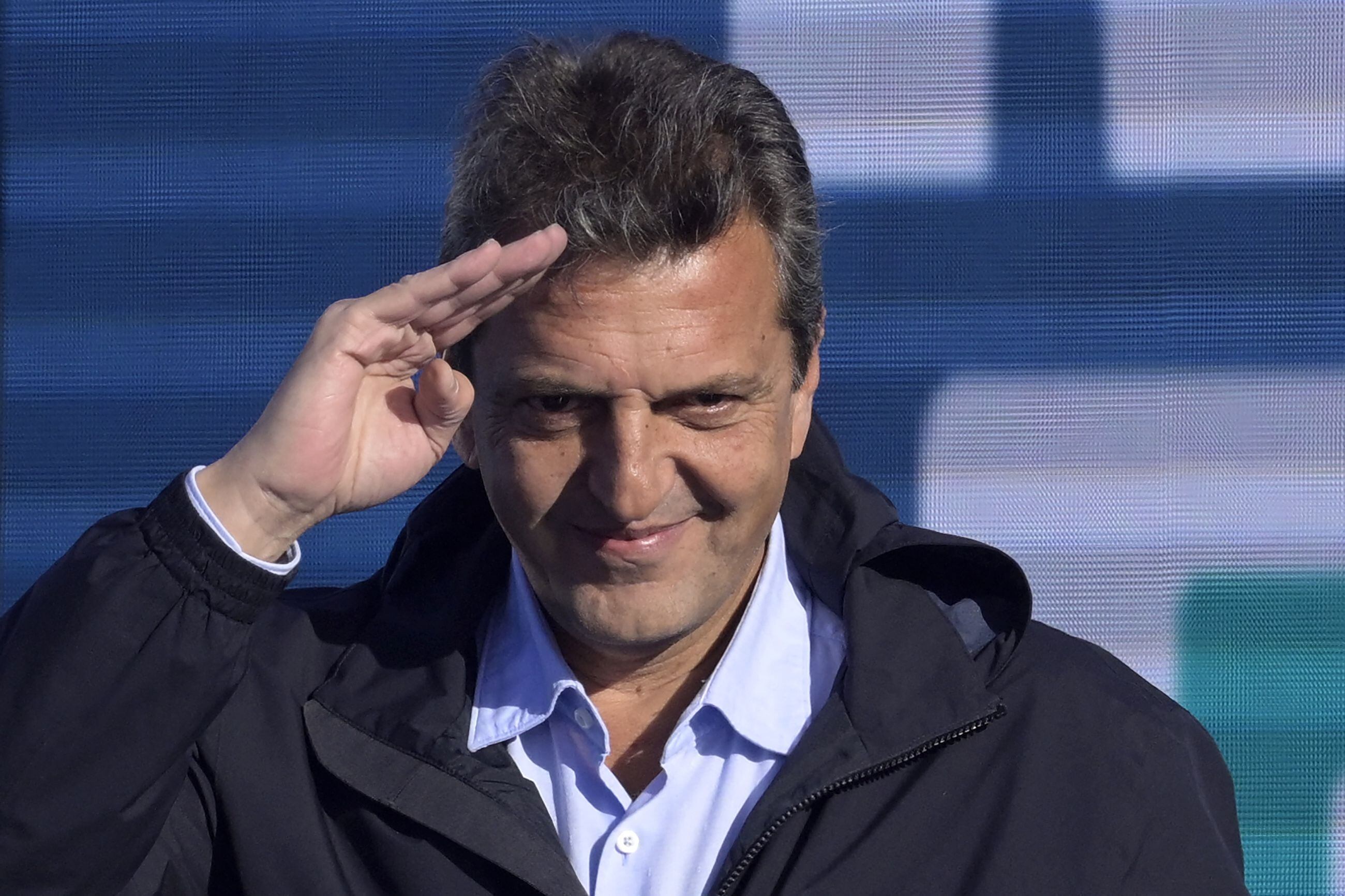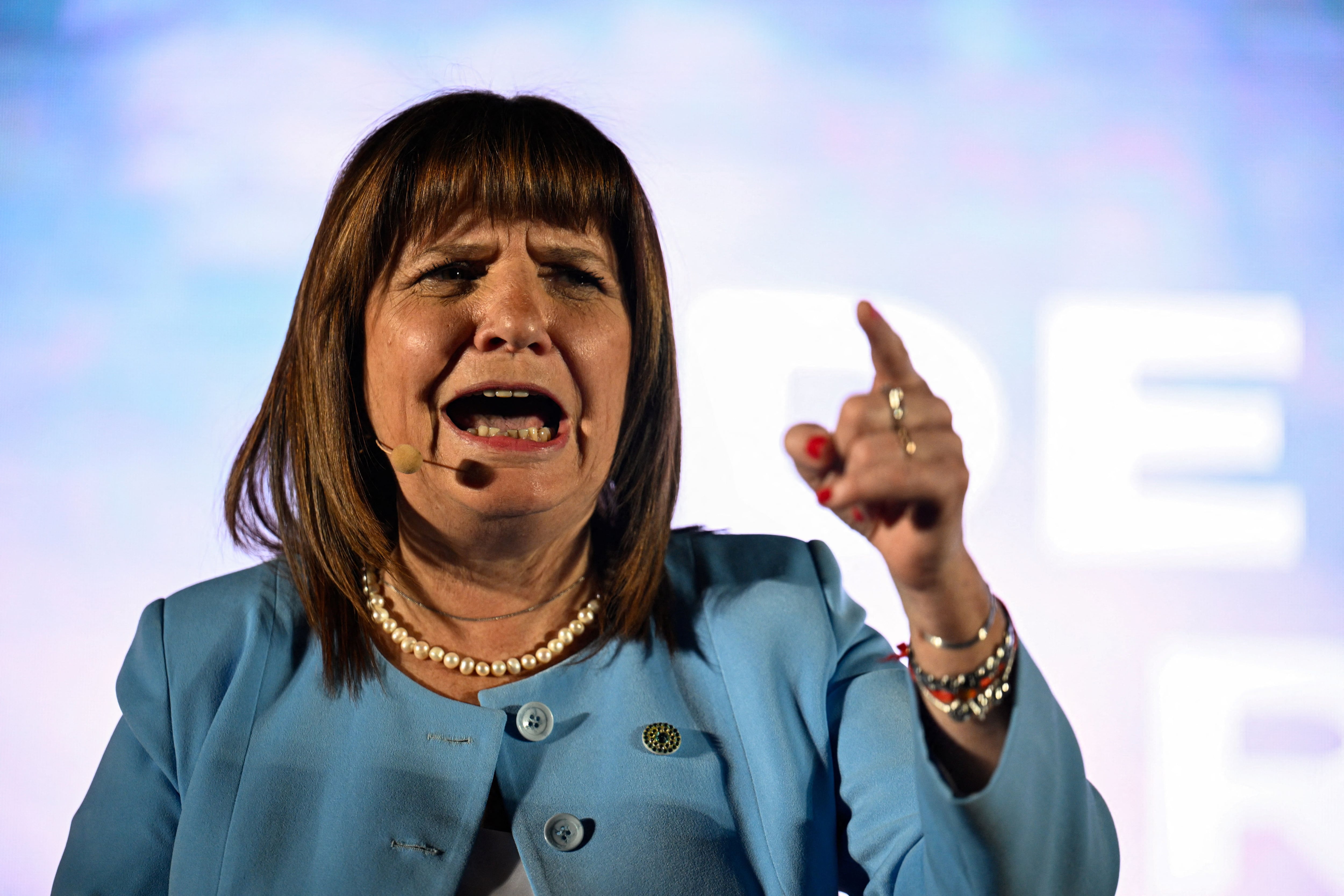Most of the most recent polls on voting intentions ahead of the Oct. 22 presidential election in Argentina predicts that there will be a second electoral round in November to define who will govern the country from December 10th and for a four-year term. Of the eight polls carried out so far in October and published as of Friday last week, seven project that the libertarian candidate Javier Milei (La Libertad Avanza, extreme right) will be the most voted in the next elections, followed by the Minister of Economy, Sergio Massa (Union for the Fatherland, ruler of Peronism) and the Patricia Bullrich (Together for Change, center-right).
These researches attribute I had a voting intention between 25.2% and 35.6%, while Massa would harvest between 26.2% and 32.7%, It is Bullrich would reach between 21.8% and 28.9%.
LOOK: How rich Argentina really became and how and when its economic collapse began
If these percentages actually occur on election day, October 22nd, It will be necessary to hold a second electoral round between Milei and Massa on November 19th.
The electoral law in Argentina establishes that To win in the first round, the candidate needs to obtain 45% of the votes, or 40% and a ten point advantage for the second. most voted candidate.
Of the research published until this Friday, none place Milei in this positionalthough there are surveys that bring it closer to this mark, with percentages that are within the margin of error and against the backdrop that for the August primaries, no survey projected the flow of votes won by the libertarian economistTherefore, the scenario does not exclude surprises in this month’s elections.
Of the polls published until this Friday, only one points to Massa as the most votedbut not winner in the first round, and also only one puts Bullrich in second and not the third as most put it.
In the August primaries, Milei, who did not contest internal elections within his political party, obtained 29.86% of the votes.
Pasta It was the second most voted, with 21.43% of the votes, although Unión por la Patria was third as the most voted force (27.28%).

Together for Change was the second most voted on that primary day (28%), but Bullrich He obtained 16.81% of the votes if the votes that went to the mayor of the capital, Horacio Rodríguez Larreta, are discounted.
These primaries revealed an unknown scenario of “three thirds” of the Argentine electorate, which, according to polls, seems to be maintained, although with prejudices in favor of Milei and Massa and with the possibility of last-minute trend changes and the errors inherent in researchers who have not demonstrated reliability in recent electoral processes.

They will also participate as presidential candidates in this month’s elections. Juan Schiaretti (We Do It for Our Country, dissident Peronism) and Myriam Bregman (Left Front and Workers).
On Friday, October 20th, early in the morning, the period of reflection will begin, during which all proselytism is prohibited.
A total of 35.8 million Argentines are called to the polls on October 22nd, elect president and vice-president, in addition to partially renewing the composition of the two chambers of the national Congress and electing 43 representatives in the Mercosur Parliament (Parlasul).
Simultaneously with the national general elections, elections will be held for governor in the provinces of Buenos Aires, Entre Ríos and Catamarca and for head of government in the Argentine capital, in addition to elections for municipal positions in several districts of different provinces.
Source: Elcomercio
I am Jack Morton and I work in 24 News Recorder. I mostly cover world news and I have also authored 24 news recorder. I find this work highly interesting and it allows me to keep up with current events happening around the world.

:quality(75)/cloudfront-us-east-1.images.arcpublishing.com/elcomercio/RUJ5HKHWDZASRHKMDFSFR6FUL4.jpg)

:quality(75)/cloudfront-us-east-1.images.arcpublishing.com/elcomercio/GE3DAMBNGAZC2MJQKQYDAORRGY.jpg)



